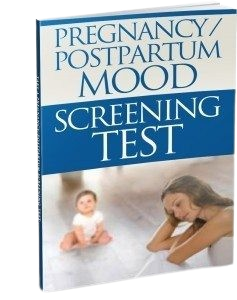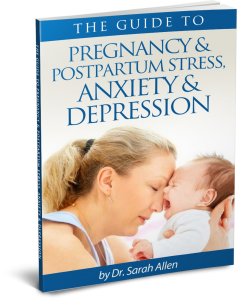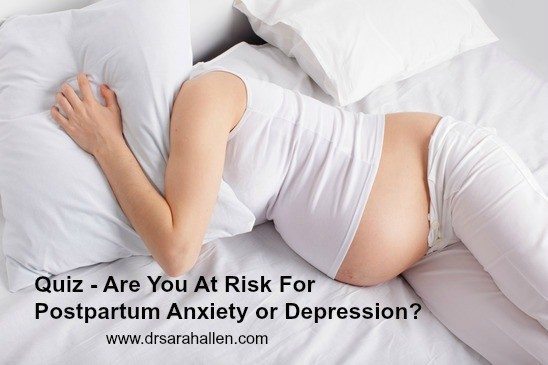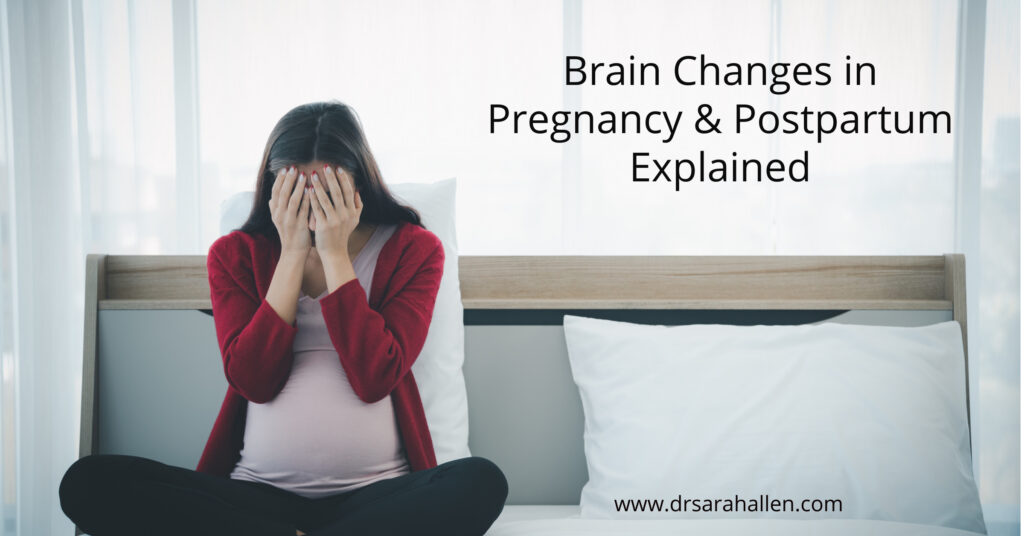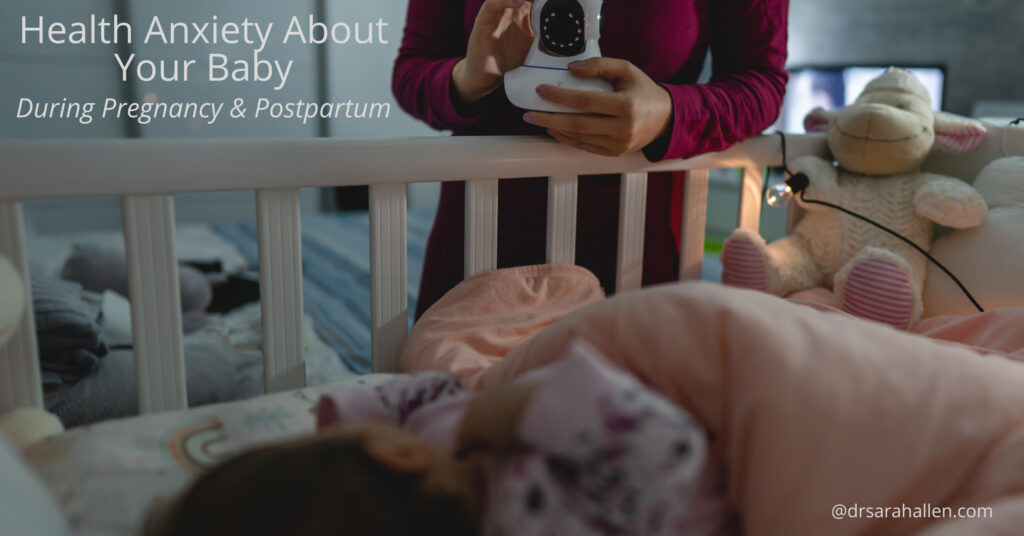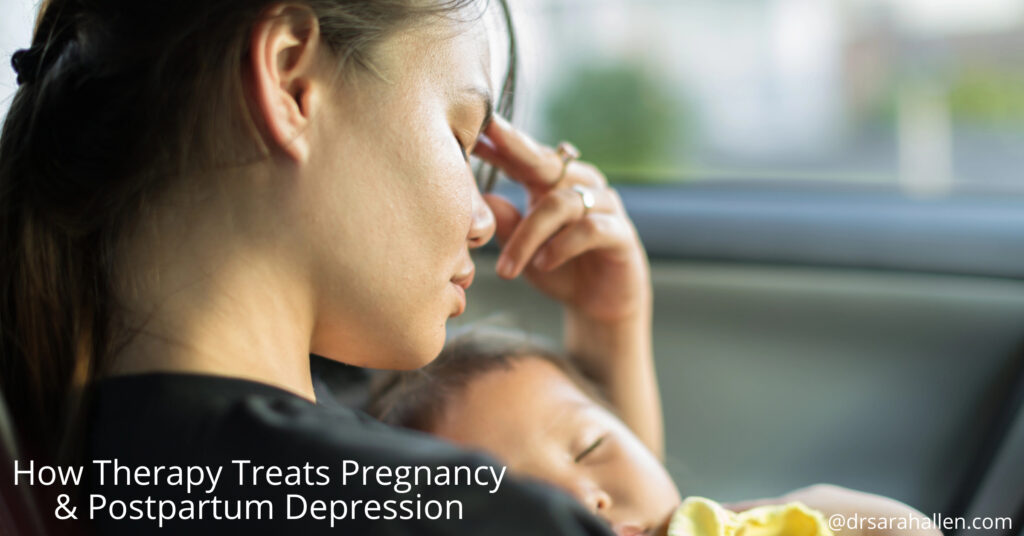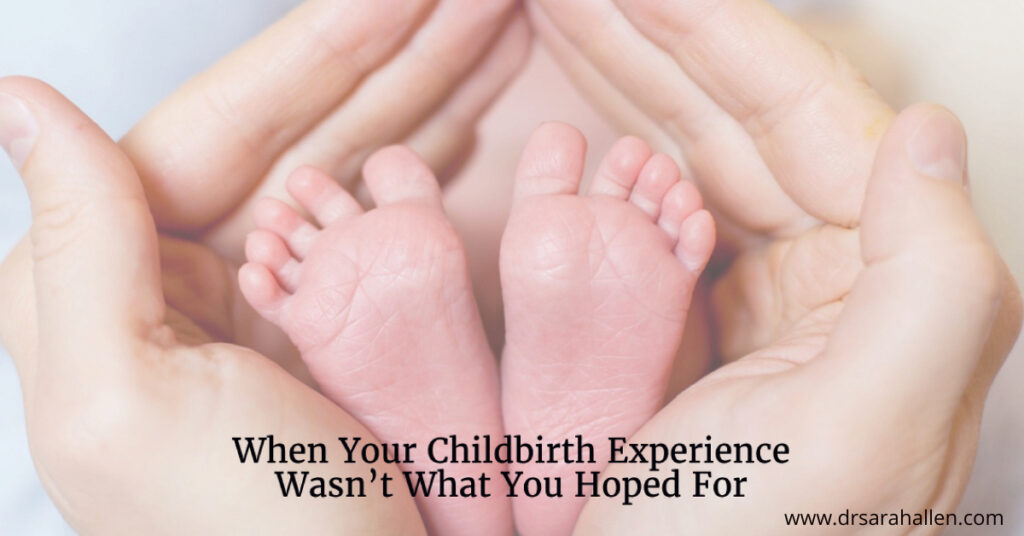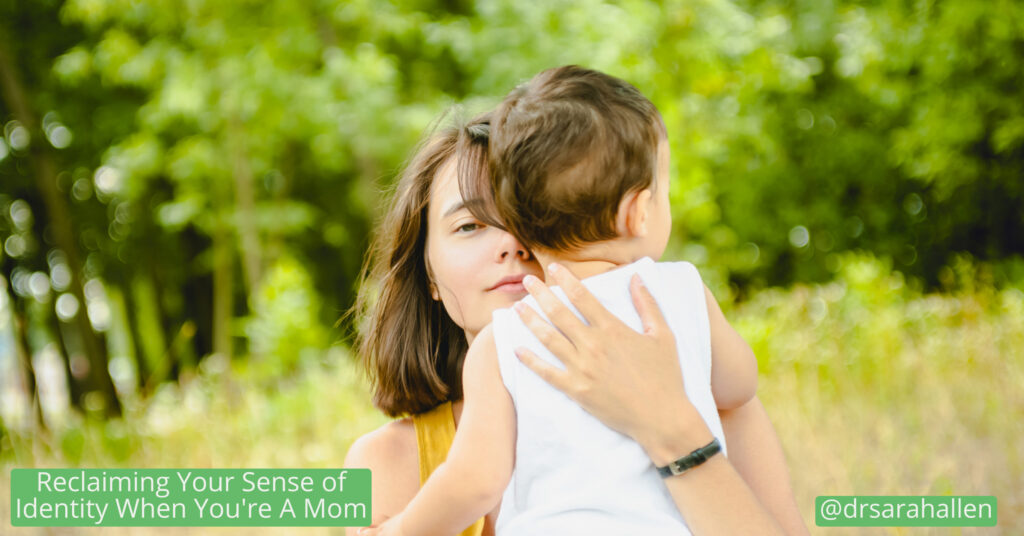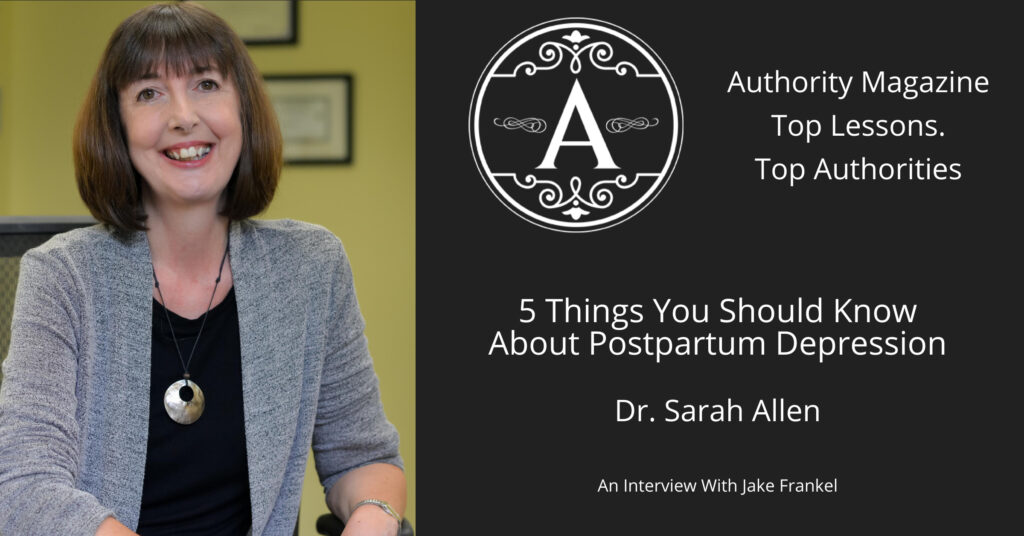
Becoming a parent brings many changes and challenges. The joy of welcoming a new baby can be mixed with feelings of worry and fear. Many new parents experience anxiety, but it can be hard to tell if these feelings are normal or if they indicate postpartum anxiety.
Postpartum anxiety is more than just regular worries. It can feel overwhelming and affect your ability to care for yourself and your baby. Recognizing the difference between typical new parent fears and postpartum anxiety is important for your mental health as understanding what postpartum anxiety is and knowing its symptoms can help you decide if you need further support.
I was interviewed a few years ago by Anna Miller at US News about Postpartum Anxiety. Back then the realization that postpartum anxiety occurs almost as frequently as postpartum depression was quite new as research had focused more on postpartum depression. Of course maternal mental health professionals like myself had known for a long time that women often experience anxiety both during pregnancy and postpartum as that is a very common topic in therapy sessions with new moms. I think Ann Miller did a great job of highlighting the effect anxiety can have on a new mom and how women often put up with feeling this way because they think it is just a part of parenting. She tells the story of a new mom who experienced intrusive thoughts about harm coming to her baby and asked me to help her know when moms should get help.
Now we are in 2024 there is much more research about postpartum anxiety and we know that approximately 10% of new moms experience anxiety that is severe enough to need treatment. Many more new moms have anxious thoughts that range from mild to moderate levels and they would like to know how to manage it and whether therapy would be helpful, so I wrote this article so everyone can understand postpartum anxiety better. Click here if you would like to read the 2015 US News & World Report article Postpartum Anxiety Or Normal Mom Fears?
Understanding Postpartum Anxiety
Postpartum anxiety is a type of anxiety that occurs after childbirth. Unlike the typical worries most new parents have, postpartum anxiety is more intense and persistent. It can interfere with daily activities, making it hard to focus on anything other than your fears. Knowing what it is can help you decide if you need to seek help.
Postpartum anxiety often involves excessive worry about the baby’s health and safety. You might find yourself checking on the baby constantly, unable to relax even when things are fine. Unlike general anxiety, postpartum anxiety is specifically related to your role as a parent and the well-being of your new baby.
Another key aspect of postpartum anxiety is that it’s a diagnosable condition. This means that mental health professionals can identify it and offer treatment options. If you find that your worries are getting in the way of caring for your baby or enjoying motherhood, it might be time to look into whether you have postpartum anxiety. Understanding this can help you take the first step toward getting the support you need.
Symptoms of Postpartum Anxiety
Recognizing the symptoms of postpartum anxiety is crucial for early intervention. This condition is often marked by a range of emotional and physical symptoms that differ from regular parental worries. Here are some common signs:
- Excessive Worry: Constantly feeling anxious about the baby’s health and safety, even when there’s no immediate concern.
- Irritability: Feeling unusually irritable or angry, often without a clear reason.
- Sleep Issues: Difficulty falling or staying asleep, even when the baby is asleep, due to racing thoughts.
- Physical Symptoms: Experiencing physical signs like rapid heartbeat, dizziness, nausea, or sweating.
- Obsessive Thoughts: Repeatedly thinking about worst-case scenarios related to the baby, often without being able to stop.
- Panic Attacks: Sudden, intense episodes of anxiety that can include shortness of breath, chest pain, or feelings of detachment.
Understanding these symptoms can help you differentiate between normal new parent concerns and postpartum anxiety. If you notice several of these signs in yourself, it might be time to seek help from a healthcare provider. Recognizing the symptoms early allows for quicker intervention and better management of the condition.
Differentiating Between Postpartum Anxiety and Typical New Parent Fears
Many new parents experience fears and worries, but how can you tell the difference between normal concerns and postpartum anxiety? Understanding this distinction is key to knowing when to seek help. While feeling some level of anxiety is normal, postpartum anxiety often involves more severe symptoms that don’t go away easily.
Typical new parent fears usually come and go. You might worry about your baby’s feeding schedule or sleep patterns, but these concerns typically resolve as you gain confidence and experience. Most parents also find reassurance in talking to friends or reading parenting books. These worries are part of adjusting to a new role.
Postpartum anxiety, on the other hand, is more persistent and intrusive. It’s marked by excessive worry that consumes your thoughts, making it hard to focus on anything else. Unlike usual fears, postpartum anxiety can lead to physical symptoms like panic attacks, chest pains, or unexplained fatigue. These symptoms don’t just affect your mood but also make it difficult to go about your daily activities. If you find that your worries are overwhelming and unrelenting, it’s a sign that you might be dealing with postpartum anxiety rather than regular parental fears.
Effective Therapies for Postpartum Anxiety
If you identify with any of the symptoms of postpartum anxiety, seeking treatment is important. Various therapies are available to help you manage the condition and improve your well-being. Here are some effective therapy options:
- Cognitive Behavioral Therapy (CBT): This type of therapy focuses on changing negative thought patterns and behaviors. It helps you identify triggers and develop coping strategies. CBT is often very effective for treating anxiety.
- Relationship counseling can also be helpful. Becoming a parent is a big transition and we can have sessions that target communication and parenting issues that have arisen or maybe a psycheducational session to discuss what your partner can do or say that helps when you are feeling anxious.
- Mindfulness and Relaxation Techniques: Practices like deep breathing, meditation, and yoga can help you manage stress and anxiety. These techniques promote relaxation and reduce the physical symptoms of anxiety.
- Support Groups: Joining a support group can provide a sense of community and understanding. Sharing your experiences with other parents who are going through the same thing can be very comforting.
- Exercise and Nutrition: Regular physical activity and a well-balanced diet can positively impact your mental health. Exercise releases endorphins, which can improve your mood and reduce feelings of anxiety.
Combining these solutions can provide a comprehensive approach to managing postpartum anxiety. Everyone’s experience is different. Your past history with anxiety, current physical, situational and relationship situations as well as pregnancy and labor experiences and baby’s health can all affect how you feel postpartum and therapy with me will always be tailored to your individual needs.
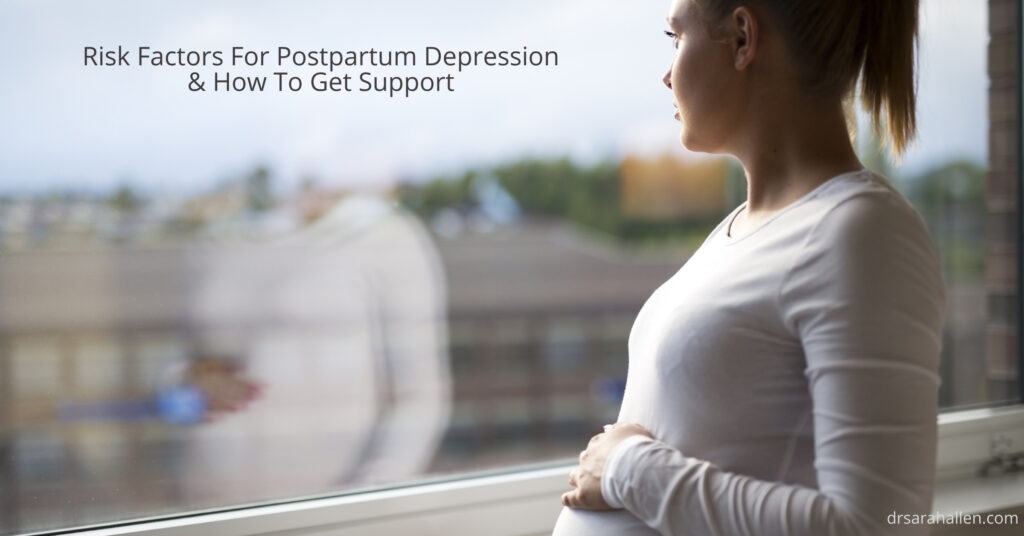
Read more about Risk Factors For Postpartum Depression & Anxiety
Conclusion
Distinguishing between postpartum anxiety and typical new parent fears is crucial for your mental health and well-being. Understanding the nature and symptoms of postpartum anxiety can help you identify if you need support. If you find yourself overwhelmed by persistent worries, symptoms like panic attacks, or physical signs of anxiety, it could be time to seek professional help. I am here to help and I have many articles as well as free booklets on my website if you would like to read more about issues that can impact maternal mental health.

Dr. Sarah Allen has 25+ years of experience in private practice helping women to transition to being the mom they want to be. She is the Founding Director of the statewide non-profit Postpartum Depression Alliance of IL. She also specializes in pregnancy loss & infertility & has published research on postpartum depression and traumatic childbirth.
If you would like to work with Sarah, please phone her at 847 791-7722 or on the form below.
If you would like to read more about me and my areas of specialty, please visit Dr. Sarah Allen Bio. Dr. Allen’s professional license only allows her to work with clients who live in IL & FL & the UK and unfortunately does not allow her to give personalized advice via email to people who are not her clients.
Dr. Allen sees clients in person in her Northbrook, IL office or remotely via video or phone.

What Can I Read That Helps Me While I Am Waiting For My First Appointment With Sarah?
If you feel that you may be experiencing pregnancy or postpartum mood disorder, or worry that you may be at risk of developing it, please download my free booklets below.
See each specific webpage to download one or many.
